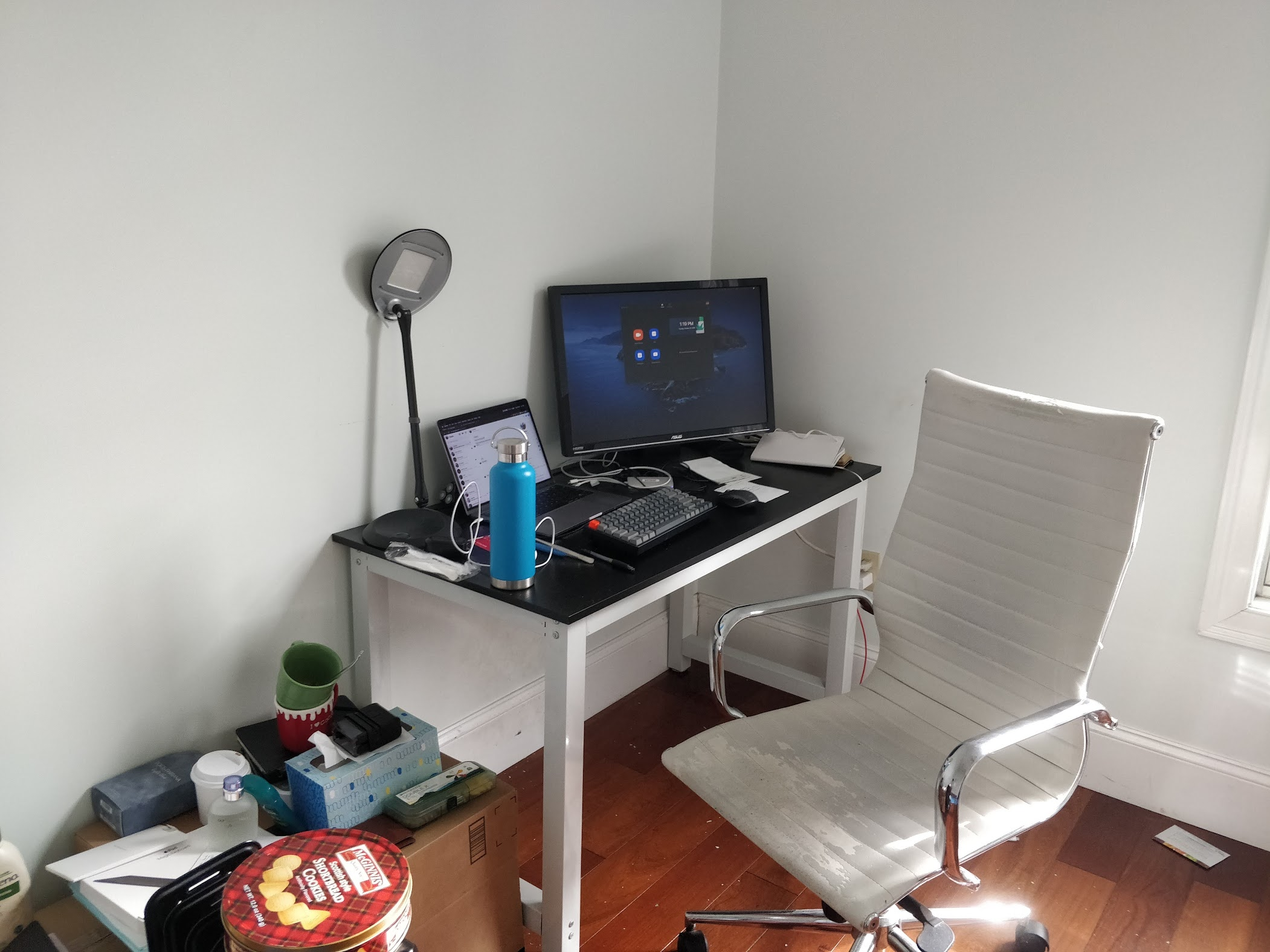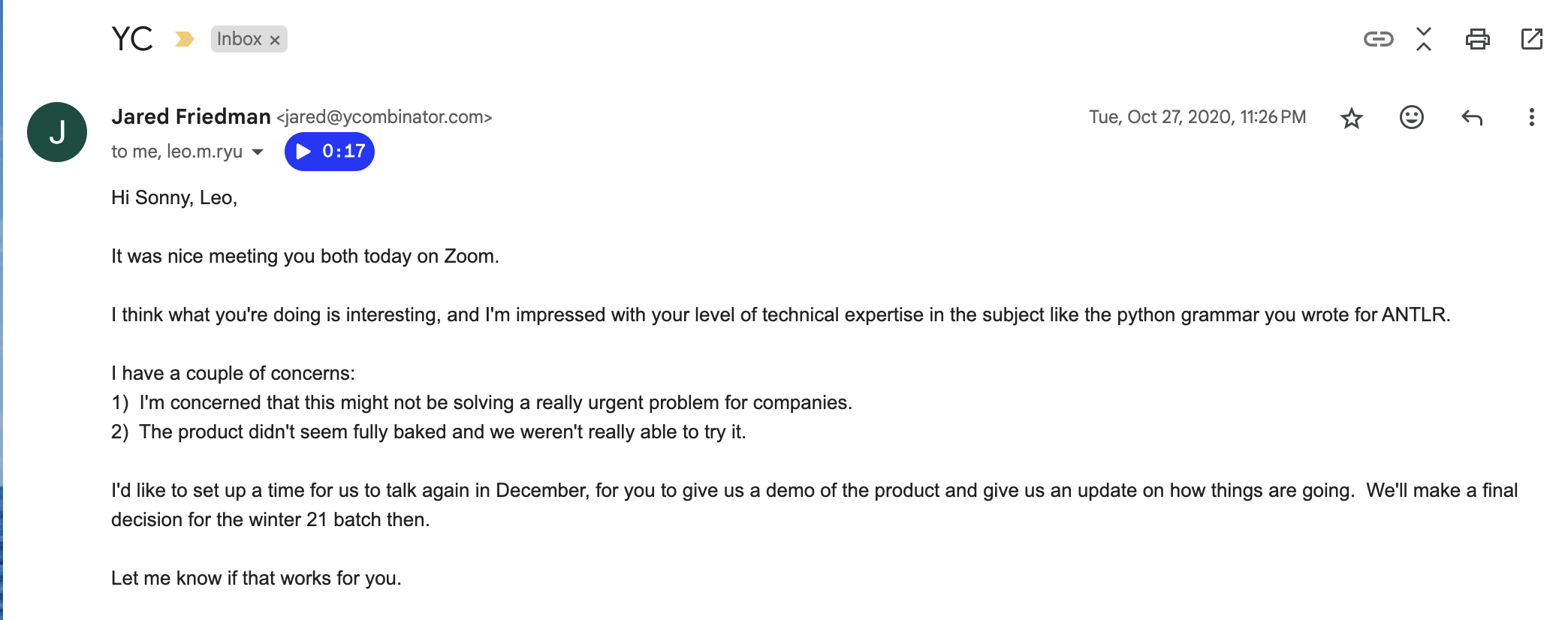Part 0: The Start
I got a few dozen people asking me how Bloom was built. I never had the opportunity to really give a comprehensive answer to that question. Since I ran that business for nearly 3 years and have completed my time, I had some time to reflect and distill the experience below in writing (as a 3 part series) in small hopes that it may encourage someone to start building out there!
Part 0: The Start#
At the start of my Senior Year Fall in 2020, all classes were remote at Brown due to COVID. Zoom university came at an opportune time because I couldn’t really afford to go to school that semester.
So, I made the decision to not go to school that semester. Instead, I decided to live with friends near the Brown campus some who still remain as my closest friends from college. With student loan payments paused and some money from my summer internship, life was relatively good for being in a global pandemic.
I still had to do something with my life during the semester. So, my best friend Leo and I decided to build a bunch of things and see how they would pan out. Leo and I had met our freshman year in college. He was the probably the kindest soul I had ever met, and we became close over dinners at the Ratty. After his sophomore year, he had returned home to San Diego to work a job. During COVID too, he had a lot of free time after his day job, and I guess working together over Zoom was a version of catching up.
Our projects were random. We created a meme page called Blueno Bot that would use GPT-2 to generate funny student testimonials. We created a better version of when2meet (named “Poisson”) that we never ended up launching. It was an idle time when we just built things for fun.
After a few weeks of tinkering, we came to the conclusion that we should spend our time more “seriously.” Early September 2020, we incorporated Contour Labs, Inc. It was a commitment to work on something more serious than meme pages. We wanted to start a company that would be big and fast growing.
We first had to figure out something to build, so we picked the first one that we saw. I remembered in my summer internship at Snowflake, a problem I saw was that its technical documentation for its SQL language, called SnowSQL, kept changing. And every time the grammar for the language would change the documentation would have to as well. We saw this as an opportunity to build a startup.
Our vision for “Contour” was building a modern universal compiler that would act as a documentation generator. We imagined it would be better in so many different ways: hosted on the cloud, use commit histories for better tree shaking, support any language, and etc. We had also gotten a $1000 grant from the 1517 Fund (thank you!) and some AWS credits.
So we set out on building Contour. It seemed like a lofty goal for me, especially as a 20 year old who hadn’t had real coding experience. Leo was more experienced with distributed systems and ML than actual software engineering too. So we made up for our technical deficiencies by writing a lot of spaghetti code and getting things to work in a very hacky way. Around the time that we had started building, we applied to Y Combinator with pretty much no expectations that we would get in.
 Desk right after calling Leo
Desk right after calling Leo
A few weeks later,
“We got an interview!!” Leo texted me.
When I saw his text, I was initially more confused than happy, because I had completely forgotten about the Y Combinator application and assumed that we would be ignored. So when he mentioned an interview, I wasn’t sure what he was referring to.
Excited by our interview, we spent the next week preparing, going after questions for a few hours every day. At the same time, we also realized we both didn’t know a single person who had done YC before. To change this, I twitter DM’ed someone and they responded to me (thanks Karine!) and had two friends who each knew two founders from the S19 batch (Spencer and Will). They helped us in understanding what was coming up. It certainly wasn’t common to do YC from Brown.
The day of the interview arrived. It was the day that Leo and I had agonized over. We had a 10 minute interview and we absolutely bombed it. I was so sure that we would get rejected afterwards. We couldn’t answer the most basic questions.
We had a demo where the YC partner tried to use our product. However, our product did not have a sign up button, and we hadn’t thought about the fact that it would be necessary for people to register! It sounds ridiculous but the YC partner was just left really confused staring at a landing page trying to sign up for 5 minutes or so. The saving grace that we had was that we mentioned my small contribution to an open source library. The fact that the partner couldn’t sign up probably saved us from rejection, as our product literally didn’t work at the time of our interview.
The same night of the interview, we received the following email:

“I’d like to set up a time for us to talk again in December”
Somehow, we had managed to find a way to get a second interview. As far as I know, YC usually makes a decision after one interview, but we had somehow avoided getting rejected in the first round.
We knew that for this interview in December, there wouldn’t be another chance: it would either be an acceptance or rejection. Leo and I had a conversation about how we couldn’t afford to not put our best effort for the two months that we had until the interview. “No regrets,” we repeated to ourselves.
We both worked day and night until the end of December. We revamped the product so that it was relatively bug free and added a sign up button so that new users could sign up. We distributed our product to a bunch of open-source repositories and gave it away for free. We asked for help from friends like Tim, who was very helpful in building out the product. Somehow, things started to slowly come together.
A few days before Christmas, we got the acceptance to YC. We hadn’t heard of what YC was 6 months before. We certainly didn’t know what ARR meant or pretty much anything that would be expected of someone who was a startup founder. We probably didn’t deserve to get in, but our hard work for the past 4 months, of day and night coding, had paid off. It felt like a huge milestone, and I had found an excuse to not to return to school.
Getting into YC was the start of a new journey. Read the next part here!